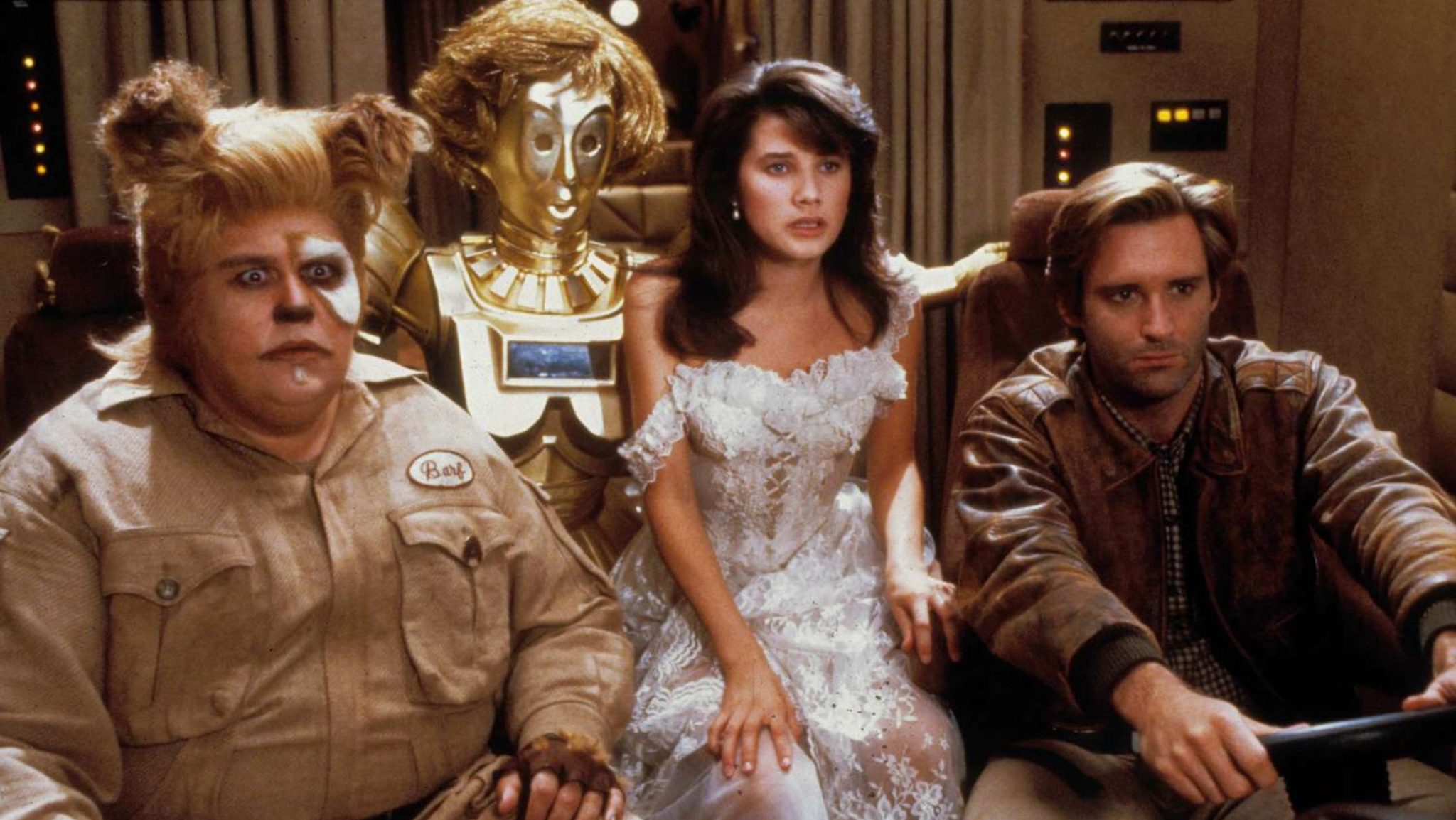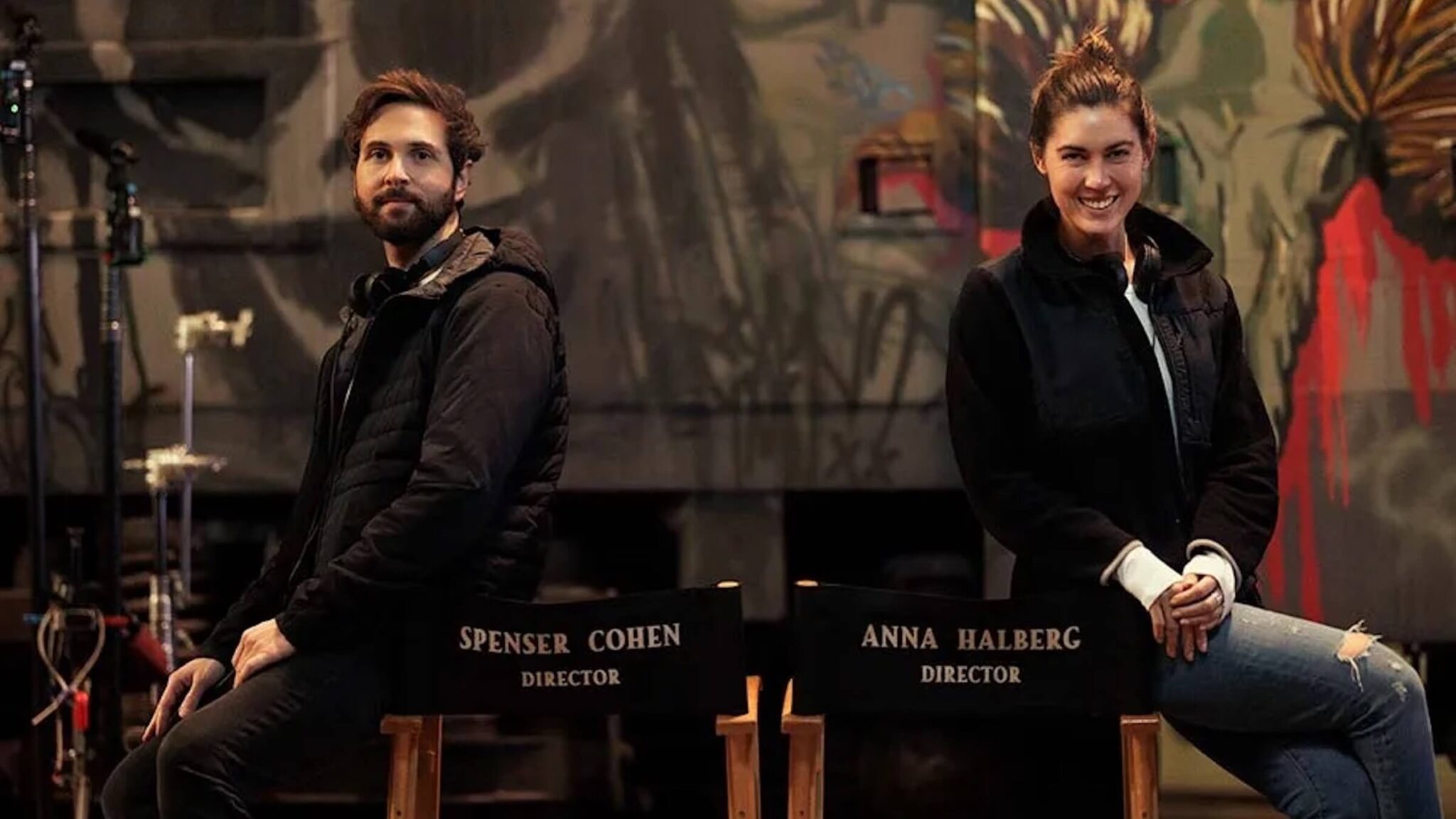10 Things Screenwriters Don't Need to Worry About

Screenwriters are always told what they do have to worry about in their screenwriting journey. So today, let's take some weight off of your shoulders and give you a helpful list of what you do not have to worry about as a screenwriter.
Screenwriters don't need to worry about...
1. Someone Stealing Your Screenplay
Now, before the collective online gasp is unleashed, let's set things straight. The moment you write your script, it is copyrighted by you. That's the truth. That's the law. That said, you should still be prudent about whom you share your script with. Are there idiots out there who think they can get away with plagiarism or outright theft? Sure. But the fact of the matter is that making a movie or TV show is a very expensive venture, and no experienced producer would RISK a lawsuit that they'd easily lose in court if they steal a screenplay and produce it.
It's common for amateur screenwriters to be very precious with their work, and fear it could be taken from them. However the general industry wisdom is that emerging writers should get their work out there as much as they can. If someone in the industry offers to read your script, take them up on the offer, as long as you have reason to believe they are credible and have real industry experience.
That said, we're not offering legal advice, and you should definitely consult with an entertainment attorney if you have any questions or concerns about copyright.
Another thing to understand is that an "idea" cannot be copyrighted; you can't "own" an idea legally. However you can copyright a written expression of an idea. From the US Copyright website:
"Copyright does not protect ideas, concepts, systems, or methods of doing something. You may express your ideas in writing or drawings and claim copyright in your description, but be aware that copyright will not protect the idea itself as revealed in your written or artistic work."
The Copyright Act of 1976 updated the original copyright laws that were last revised in 1909. Previously, to copyright your work, you needed the content to be both published and have a notice of copyright attached to the work. If you didn't have either of these things in place, your work was considered part of the public domain. Crazy, huh?
The good news is that as soon as you write something in any form of expression — whether it's published, registered, or not — it's yours by law.
The only real benefit of copyrighting a script through U.S. Copyright Office registration is this: registration is required before the creator can file a copyright infringement suit. You can also benefit from enhanced statutory damages. In short, it helps your case. Register your screenplay with the US Copyright Office here.
However, the chances of someone in Hollywood outright stealing your script are few and far between. Hollywood pros would much rather buy your script than face expensive lawsuits. So it's up to you to make sure you just deal with legitimate people in the industry. If you're working with wannabe producers with no major credits and have over the keys to your script, that's on you.
That said, there's nothing wrong with added protection. It's just not something you need to worry about.
Screenwriters don't need to worry about...
2. Registering Your Script with the WGA
The only thing you are getting is a timestamp of the draft that you register, allowing you to present another piece of evidence to prove your ownership of the material. Technically, every draft you write would need another registration. The moment you change a word is when the WGA registration number is invalid for that new draft.
Related blog post: 5 Things Screenwriters Should Know About Copyright Law
Once again, you don't have to worry about this if you share the script with legitimate industry insiders. They're not out there to steal work. They have plenty to choose from and they do not want a lawsuit.
The fear of having your screenplays and ideas stolen is a common worry for newcomers. It's just not something you need to worry about if you deal with the right people.
- Get a subscription to IMDBPro and check the credits of anyone you're dealing with
- Get a subscription to The Tracking Board to learn about industry professionals from other writers and get info on the current deal-making climate for screenwriters.
- Only share your script with those that have major credits from major studios, production companies, distributors, management companies, and agencies
Screenwriters don't need to worry about...
3. Putting U.S. Copyright or WGA Registration Numbers on the Title Page
Let's say you want to be overly cautious, so you register them for copyright and WGA registration. No harm in that. But what you do not need to worry about is putting those registration numbers on your screenplay's title page (or anywhere within it).
There's no purpose for that — and it works against you because it comes off as an immediate red flag that you're an amateur.
Screenwriters don't need to worry about...
4. Including a Mailing Address or Phone Number on the Title Page
Back in the days before emailing a PDF of a script was the norm, hard copies were sent. Studio mail departments were flooded with thousands of hard copies of screenplays from around the entire industry.
In the 1990s, it was common practice for screenwriters to include a pre-paid envelope for the studio, production company, agency, or management company to send the script back. Hey, those copies were expensive! It then became common practice to include your mailing address on the title page — just in case.
Well, that's not necessary anymore these days. Yet I still see so many screenplays with the mailing address on the front.
The phone number option isn't something you need to worry about either. Most correspondence will start with an email. If the interested party wants to take it to the next level after they've read your script, they'll email and request a call.
There's another element to the phone number and mailing address inclusion. If you live outside of Los Angeles, it's an immediate red flag for many industry insiders because they want writers that can attend meetings. While the culture changes in the wake of pandemic and (hopeful) post-pandemic common practices, having an out-of-town number and address can subtly work against you.
Read ScreenCraft's How Screenwriters Can Master the Hollywood Zoom Meeting!
Screenwriters don't need to worry about...
5. Scene Numbers
We know that produced screenplays often have scene numbers when we read and learn from them. It looks professional. It looks legit. It looks cool. However, for a spec script, it's a distraction and a clear sign of an amateur. Scene numbers can and will be added if the script goes to production — not before. So no need to worry about trying to make the script look more professional by including scene numbers.
Screenwriters don't need to worry about...
6. Who Is Reading Your Screenplay
Some screenwriters try to cater their drafts to particular people or companies. If you're sending something to Joel Silver (action producer of Lethal Weapon) and his production company, you shouldn't be worrying about changing your script to read like Shane Black's Lethal Weapon script, which was a unique read.
You have no control over who is or isn't going to read your script. Even if you luck out and manage to get an invitation to send it to an industry insider that you met at an event or through a major screenwriting contest placement, chances are their readers are going to read it for them anyway.
Just write the best possible script using your own narrative voice.
Screenwriters don't need to worry about...
7. Directing Your Script Through Your Writing
If you are an auteur and plan on directing the script, it's okay to be specific about the visuals and how they are presented. But chances are you aren't planning on directing it and likely wouldn't be given a chance to do so in Hollywood until you are established. So when you write the script, we don't need every specific:
- Angle
- Cut
- Transition
- Insert
- Sound effect
Let the reader imagine those things through their mind's eye. That's part of the fun of reading a script. When readers read specific camera directions and such, it slows the read down because you're asking them to visualize it a specific way. Their minds have to stop to try and picture that — even for a brief second. You don't want that to happen.
Instead, focus on the broad strokes of description. If an angle, cut, transition, insert, or sound effect is essential to the story, then you can include that for sure. Otherwise, let the reader envision it and let the director direct it.
Screenwriters don't need to worry about...
8. Choreographing Fight Scenes and Action Sequences
Once again, it's all about broad strokes. Yes, you want to create fight scenes and action sequences that have drama, conflict, objectives, and obstacles. You want to build anticipation and surprise the reader and audience with twists and turns of events. There's an art to creating those moments in screenplays.
But you don't want to slow the read of the script down to a halt by detailing every punch, kick, technique, explosion, fall, turn, etc. Let fight choreographers and stunt coordinators (in collaboration with their directors) figure out all those details.
Screenwriters don't need to worry about...
9. Production Design and Wardrobe
For production design, you don't have to worry about the details of the sets. Just offer those broad strokes of:
- What type of setting the characters are in
- What could possibly be seen within that setting
- What the general atmosphere is evident within each setting
If some visuals and descriptions are partial to the story, you can briefly shine a spotlight on them. However, you don't need to worry about overly descriptive paragraphs of settings and locations. We don't need to know:
- The color scheme of the room
- The types of chairs
- The types of plates
- The type of decorations
Just give us what we need to know and let production designers do the rest.
For wardrobe, just detail what is partial to the story and the character. If a character's messy wardrobe has something to do with their arc, go for it. If what a character is wearing has nothing to do with their arc and the story, skip it.
Screenwriters don't need to worry about...
10. Marketing and Getting Representation the First Couple of Years
I speak with so many novice screenwriters in person and online. The first questions I get are almost always:
- How can I get an agent or manager?
- How can I get my screenplays into the hands of major producers, studios, showrunners, and networks?
I tell every single one of them the same thing — "Just focus on honing your craft."
If you want to succeed as a screenwriter, here's my advice — become a great screenwriter first, and then worry about the rest.
Why would you want to push your first couple of screenplays into the hands of decision-makers? Your first scripts are your worst. That's a fact. You can always go back to them and make them better down the road, but your priorities should be:
- Becoming the best possible screenwriter you can be
- Building a stack of 3-5 excellent screenplays
- Training yourself to write like a professional
Become the best possible screenwriter you can be
You get better with every script you write. Test the waters through major contests and fellowships. Have peers offer you feedback. In the end, you need to find your voice and your strengths. Do that by writing multiple feature or episodic scripts (depending on your intended career paths). You fail. You learn. You try again. You prevail.
Build a stack of 3-5 excellent screenplays
I'm not saying your first 3-5 scripts. I'm saying that you should have a stack of 3-5 amazing scripts that are worthy of a major studio, network, or streamer. Your first 2-3 scripts won't be that. Maybe you'll squeak one solid one out of that first bunch, but you are going to need a stack of industry-ready scripts before you market to a single industry company or individual.
When you create a marketing plan, every single lead you get is a bridge to your screenwriting career goals. Why would you want to risk burning that bridge you worked hard to build by pushing your first or second script that is clearly not your best effort? It's worth the time to hone your craft and build that stack.
Train yourself to write like a professional
Unless you want to spend 5 years building that stack — instead of my 1-2 years recommendation — you need to learn how to write like a professional. Many professional assignment contracts offer the contracted screenwriter 2-3 months to finish the first draft, which an additional 1-2 weeks for the follow-up draft after notes. Usually, when you start, you're given less than that.
My first assignment offered me just two and a half weeks to finish a 250-page two-part miniseries. It was pre-sold overseas, and they needed a draft as soon as possible.
So, gone should be the days of spending 6 months writing a first draft, followed by a month or two for each draft that follows. You need to grow up and grow up fast as a screenwriter to stand apart from the rest. Train yourself to finish the first draft in two months (with maybe a month of front-end development work). Then give yourself the hard deadlines of 1-2 weeks for the second draft.
If you want to learn how to write lightning-fast, read ScreenCraft's The 10-Day Screenplay Solution: Learn How to Write Lightning Fast!
These are elements that you shouldn't have to worry about as a screenwriter. Take that weight off of your shoulders and focus on writing some amazing screenplays.
Ken Miyamoto has worked in the film industry for nearly two decades, most notably as a studio liaison for Sony Studios and then as a script reader and story analyst for Sony Pictures.
He has many studio meetings under his belt as a produced screenwriter, meeting with the likes of Sony, Dreamworks, Universal, Disney, Warner Brothers, as well as many production and management companies. He has had a previous development deal with Lionsgate, as well as multiple writing assignments, including the produced miniseries Blackout, starring Anne Heche, Sean Patrick Flanery, Billy Zane, James Brolin, Haylie Duff, Brian Bloom, Eric La Salle, and Bruce Boxleitner, and the feature thriller Hunter’s Creed starring Duane “Dog the Bounty Hunter” Chapman, Wesley Truman Daniel, Mickey O’Sullivan, John Victor Allen, and James Errico. Follow Ken on Twitter @KenMovies
For all the latest ScreenCraft news and updates, follow us on Twitter, Facebook, and Instagram.
Get Our Screenwriting Newsletter!
Get weekly writing inspiration delivered to your inbox - including industry news, popular articles, and more!




























